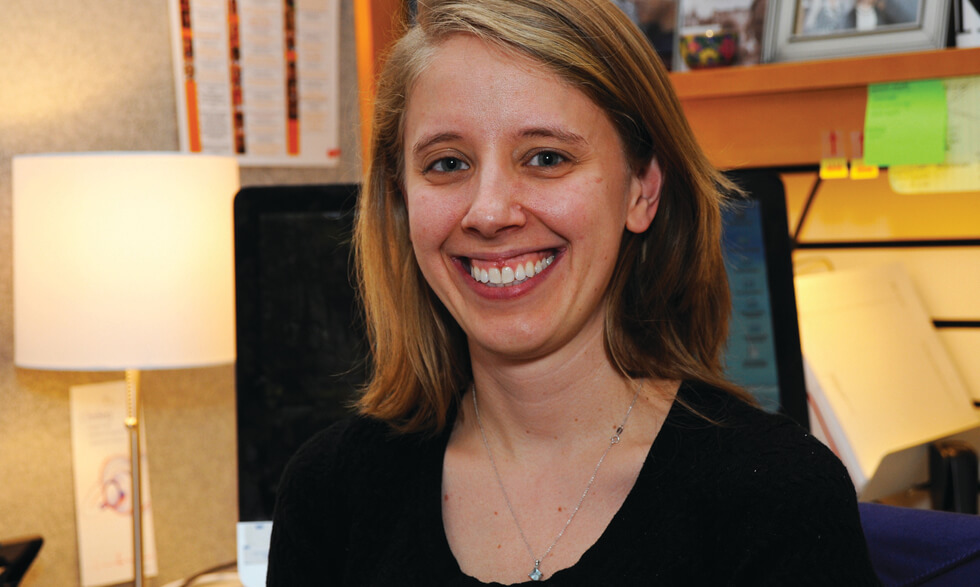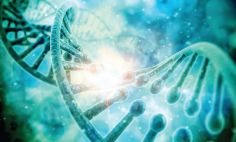Katie Lewis is a genetic counselor and research coordinator at NIH's National Human Genome Research Institute (NHGRI). She counsels people who volunteer for genetic clinical research. She recently spoke to NIH MedlinePlus magazine about her work.
What kind of genetic research do you direct at NHGRI?
I work on a project called the ClinSeq© study. This study offers people from the Washington, D.C., area the opportunity to have a type of genetic testing called exome sequencing. Exome sequencing looks at almost all of a person's genes. The basic idea is that the sequencing can identify variants in a person's genes. These variants are places where their genetic sequence differs from an expected sequence.
We try to find out whether those variants have health implications. If we think that they do, we offer participants the option to hear about them.
The participants in the study agree to have this kind of testing and to return from time to time over many years to hear results of their genetic testing. They also give us more information about their health.
What are the goals of this research?
We want to learn as much as we can about this new type of genetic testing. We also want to serve as a resource so other researchers can learn about our participants and their genetic information. Specifically, we are interested in learning about exome sequencing in several ways:
Along with other researchers, we are working to develop and refine systems for interpreting a person's exome sequencing results. This is a complex process because genetics is still a relatively new field, and we have a lot to learn about how variants in a person's genes might affect their health.
We are also researching what participants think about this testing. For example, we want to learn how much participants want to know about their genetic makeup. Some participants may only want to hear about genetic variants that put them at risk for health problems that they can prevent. Other participants may want to know about risks for diseases even if we can't prevent them. We're also doing research on the best ways to share genetic testing results with individual participants with an eye toward finding a system that is efficient but also maintains an excellent quality of care.
What exactly does a genetic counselor do?
We provide people with education and information about genetics that is relevant to their personal or family history, advise them about screening recommendations, and may offer genetic testing. We also provide our patients with support in the face of this type of information and help them adapt to it.
Why do people take part in these studies?
We asked participants, "What are your reasons for wanting to participate in this study?" The two most common reasons that participants said they joined the study were that they wanted to support research and hoped they would learn more about their personal health risks.
Why else do people seek genetic screening?
There are many reasons why a person might have genetic testing or screening. One of the most common reasons for seeking genetic counseling is if a couple is concerned about their risk of having a child with a genetic condition. These couples might have genetic testing and counseling ahead of or during a pregnancy.
Another common reason to have genetic counseling is if you have a health problem that runs in your family and want to know more about your risk of developing the condition.
Other times people who have a personal history of a health problem—like heart disease or cancer—seek genetic counseling for more information about the chance that their genes put them at risk for the condition. This may help them understand why they developed the health problem. It could also show if their family members have a similar risk.






